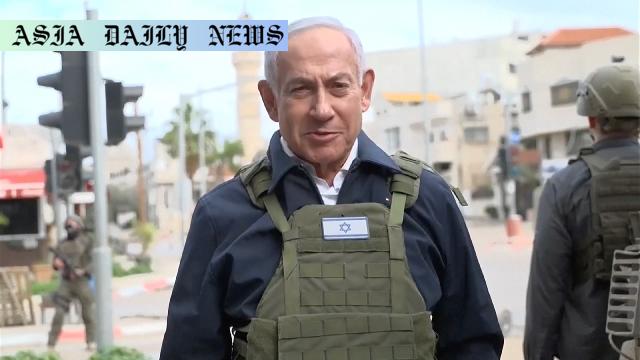Ceasefire: Israel delays the planned release of over 600 Palestinian prisoners, sparking tensions under the fragile peace agreement.

Overview of the Ceasefire and the Recent Developments
The current six-week ceasefire agreement between Israel and Hamas, which took effect on January 19, was designed to provide a crucial pause in hostilities. However, recent developments have raised concerns about the sustainability of the truce. On Sunday, Israeli Prime Minister Benjamin Netanyahu announced a delay in the release of over 600 Palestinian prisoners, sparking fresh tensions between the two parties.
Background of the Ceasefire Agreement
The ceasefire deal was aimed at fostering trust between Israel and Hamas after prolonged violence and uncertainty in the Gaza Strip. Under the agreement, both parties committed to specific terms, including Hamas handing over hostages and Israel facilitating the release of Palestinian prisoners. So far, Hamas has released a total of 29 hostages, including six on Saturday, with four still unaccounted for. Meanwhile, Israel has freed approximately 1,100 Palestinian prisoners as part of the deal.
The Alleged Violation by Hamas
Netanyahu cited instances of Hamas conducting “humiliating” handover ceremonies as a direct violation of the ceasefire terms. Footage from NHK’s Gaza office showed a male hostage speaking in front of a crowd of Hamas fighters and civilians – a moment that Israel claims undermines the intended spirit of the agreement. Hamas, however, has strongly condemned Israel’s decision to delay the prisoner release, calling it a breach of the negotiated terms.
Reactions and Implications
The delay in releasing the prisoners has not only escalated tensions but also brought the ceasefire under immense scrutiny. Hamas accused Israel of violating the agreement, while officials in Gaza expressed grave concerns about the fragile peace process. For many Palestinians, the delayed release has created frustration and a sense of betrayal, as families remain separated from their imprisoned loved ones.
Humanitarian and Political Consequences
The prolonged conflict and now the ceasefire breach have undermined humanitarian efforts in the region. Thousands of displaced civilians, both in Israel and Gaza, grapple with an uncertain future. The exchange of prisoners and hostages is seen as a key confidence-building measure, and the delay threatens the progress made thus far. This development could lead to increased hostilities, further endangering lives and stability.
The Broader Impact on Israeli-Hamas Relations
Relations between Israel and Hamas remain deeply fractured. The decision to delay the prisoner release adds another layer of contention to an already volatile situation. Experts fear that unless both parties engage constructively to resolve these issues, the ceasefire might collapse, paving the way for renewed clashes and suffering.
Final Thoughts
While the ceasefire agreement provided a glimmer of hope, its success depends on mutual respect and adherence to the terms. The current standoff over hostages and prisoners highlights the challenges in achieving lasting peace in the region. Greater international intervention and mediation may be required to prevent a full-blown escalation. For now, the situation remains fragile, with both sides accusing each other of violations that threaten the fragile truce.
Commentary
The Fragility of Peace Agreements
Ceasefire agreements are often seen as a beacon of hope amidst conflict, but they are also inherently fragile. The delays and accusations in the current Israel-Hamas agreement underscore just how challenging it is to build trust between two deeply entrenched adversaries. With each perceived or real violation, the foundation of the agreement starts to crumble, pushing both parties closer to renewed violence. It raises questions about what more can be done to ensure adherence to such agreements and whether the mechanisms in place to enforce them are sufficient.
The Human Cost of Delays
For families waiting for the release of prisoners or the return of hostages, these delays are devastating. The human cost of this conflict is not just measured in lives lost but also in the emotional and psychological toll it takes on those caught in the middle. Whether it is a Palestinian family waiting for a loved one’s return or an Israeli family hoping to see a relative come home safely, the suffering of ordinary people cannot be ignored. It is heartbreaking that political maneuvering often comes at such a high price for those who have no part in the decision-making processes.
Finding Sustainable Solutions
At its core, this conflict requires sustainable, long-term solutions that address the underlying issues. Ceasefires are temporary measures, and while they provide respite, they are not a substitute for real change. Leaders on both sides must work towards understanding and compromise, even if it seems daunting. The international community, too, must play a more active role, not just as mediators but also as enforcers of agreements. Without a concerted effort to tackle the root causes of this conflict, the cycle of violence and truce will inevitably continue.


